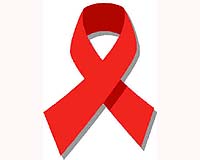| . |  |
. |
Washington (AFP) Oct 28, 2009 The United States will not donate swine flu vaccine to poor countries until at-risk Americans have been inoculated against H1N1, an official said Wednesday. "As vaccine becomes more available, I think evaluation will be made as to when it's appropriate for donation to begin, but I can tell you at this point the priority is getting the vaccine to citizens in this country, and that's what we're working on 24/7," US Health Secretary Kathleen Sebelius said. "It has always been the president's intention that the safety and security of the American people be a priority in the production and distribution" of the vaccine against the new strain of H1N1 flu, Sebelius said. The White House pledged last month to make US stocks of H1N1 vaccine "available to the World Health Organization on a rolling basis as vaccine supplies become available, in order to assist countries that will not otherwise have direct access to the vaccine." The WHO has said donations of the vaccine from a US-led group of rich nations to about 100 developing countries could begin as early as November. But since the first doses of vaccine were rolled out in the United States three weeks ago, officials have been forced to admit that H1N1 shots and nasal spray doses were not being delivered as quickly or in the quantities initially projected. In mid-October, as H1N1 deaths rose and flu spread across the United States, vaccine manufacturers warned of production slow-downs and health officials said supply would fall about 10 million doses short of the 40 million doses they had expected to have by the end of this month. Long lines formed outside vaccination clinics around the United States, with many people turned away as supplies ran dry. Sebelius said 23 million doses of vaccine have been made available to state health authorities since the vaccine was first rolled out three weeks ago. Nine million doses came into the distribution pipeline in the past week alone, she said. The states are giving the vaccine to people in five at-risk groups -- children and young adults, pregnant women, people with underlying health conditions such as asthma, health care workers and caregivers of infants younger than six months who cannot themselves be inoculated. Those five priority groups for vaccination number around 150 million people. Orders have been placed for 250 million doses of vaccine, but "it was never going to be available all at the same time," said Sebelius.
Share This Article With Planet Earth
Related Links Epidemics on Earth - Bird Flu, HIV/AIDS, Ebola
 Russia policies slammed at HIV conference
Russia policies slammed at HIV conferenceMoscow (AFP) Oct 28, 2009 Russia came under fire from international AIDS campaigners on Wednesday for refusing to provide drug users with drug substitution therapy to stem a spreading HIV epidemic. Russia's chief medical official Gennady Onishchenko told a major AIDS conference that Moscow opposed providing methadone -- a synthetic drug that is not injected -- to heroin users. He said that Russia preferred to ... read more |
|
| The content herein, unless otherwise known to be public domain, are Copyright 1995-2009 - SpaceDaily. AFP and UPI Wire Stories are copyright Agence France-Presse and United Press International. ESA Portal Reports are copyright European Space Agency. All NASA sourced material is public domain. Additional copyrights may apply in whole or part to other bona fide parties. Advertising does not imply endorsement,agreement or approval of any opinions, statements or information provided by SpaceDaily on any Web page published or hosted by SpaceDaily. Privacy Statement |